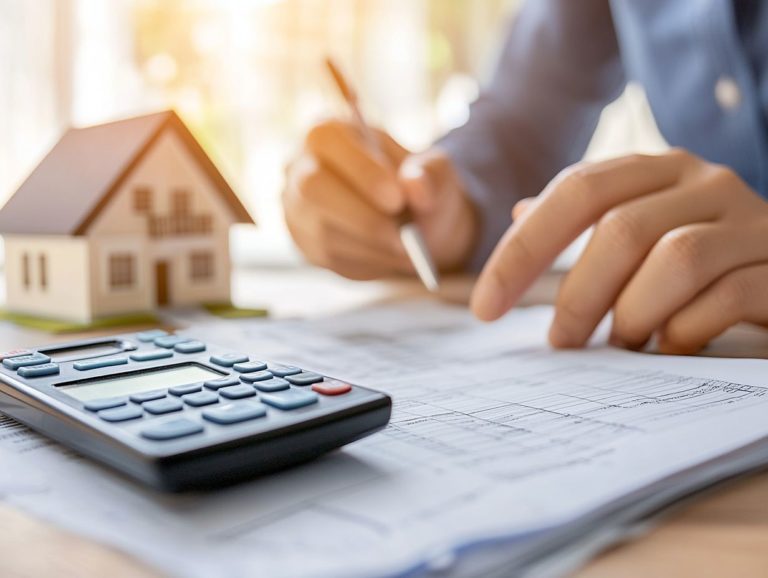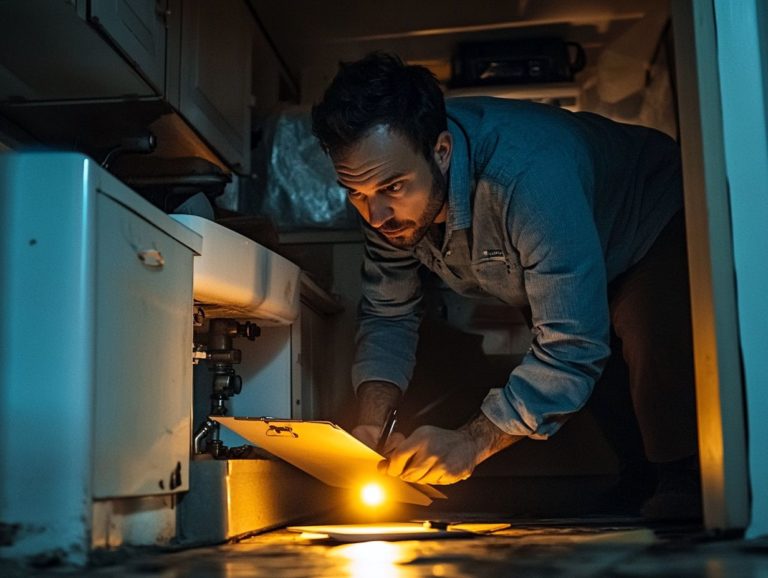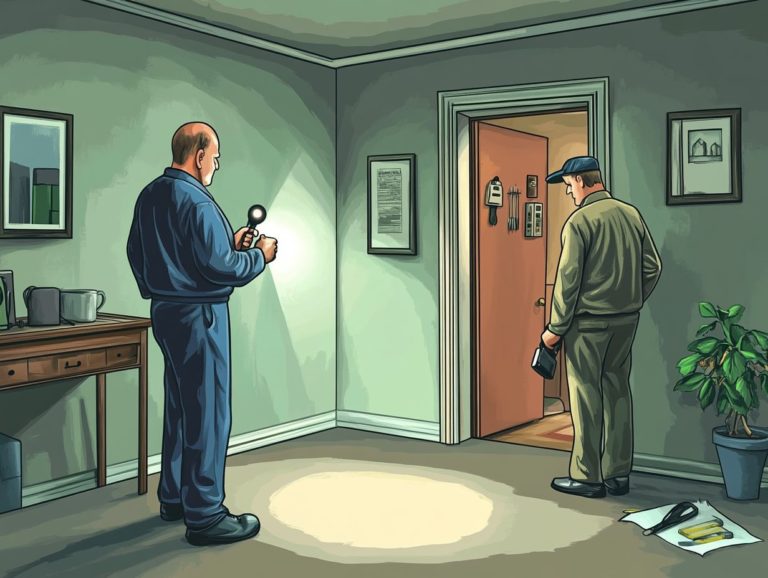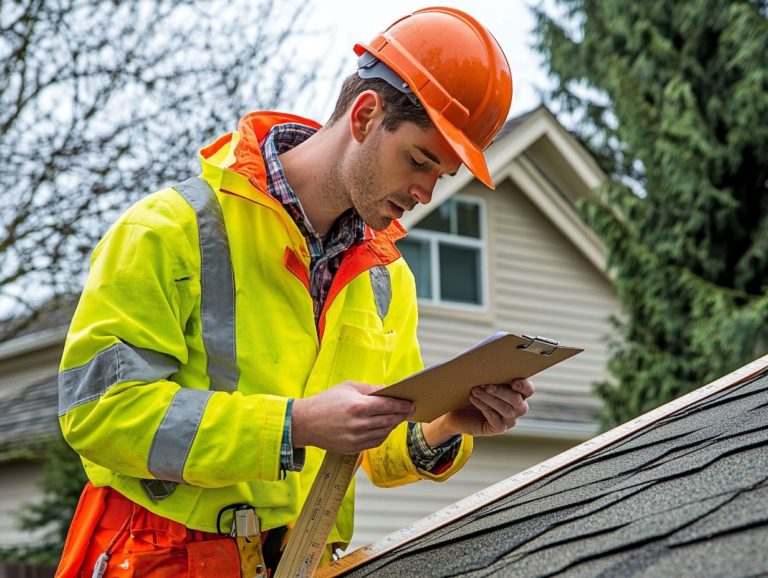5 Essential Questions for Home Buyers
Buying a home ranks among the most significant decisions you ll ever make, and it s essential to approach it with a clear and focused mindset.
It’s vital to ask yourself key questions. From establishing your budget and pinpointing must-have features to contemplating your long-term goals and assessing neighborhood vibes, every step can profoundly influence your investment.
This guide will help you tackle your home-buying journey with confidence! We will address crucial inquiries while highlighting common pitfalls to avoid, exploring mortgage options, uncovering hidden costs, and detailing the advantages of collaborating with a real estate agent.
Immerse yourself in this journey to arm yourself with the knowledge needed for a successful home-buying experience!
Contents
- Key Takeaways:
- 1. What Is My Budget and How Much Can I Afford?
- 2. What Are My Must-Haves in a Home?
- 3. What Are My Long-Term Goals for This Home?
- 4. What Is the Neighborhood Like and Is It a Good Fit for Me?
- 5. What Is the Resale Potential of This Home?
- What Are Some Common Mistakes to Avoid When Buying a Home?
- Frequently Asked Questions
Key Takeaways:
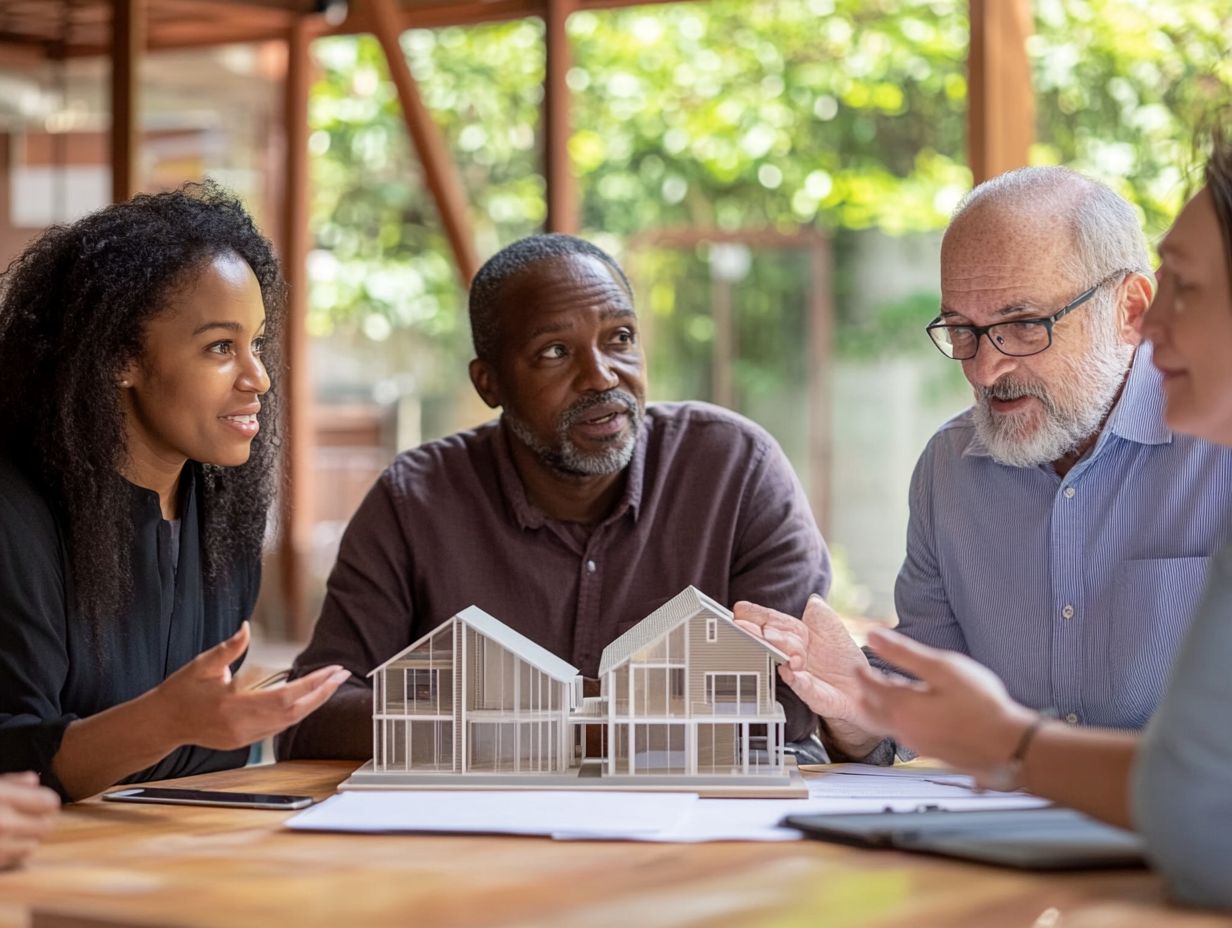
- Determine a realistic budget and stick to it to avoid financial strain.
- Identify must-haves in a home to prioritize and narrow down your search.
- Consider long-term goals for the home to ensure it meets future needs.
1. What Is My Budget and How Much Can I Afford?
Understanding your budget and determining what you can realistically afford is vital for first-time homebuyers and current homeowners looking to understand homeownership. This ensures that you re considering the financial implications in light of economic conditions and your own comfort zones.
To effectively assess your financial situation, start by reviewing your credit score. This score significantly influences your mortgage eligibility, meaning the likelihood of qualifying for a loan, and the interest rates you may receive.
This initial step, combined with a thorough understanding of your mortgage readiness, will help you gauge your standing in the competitive housing market. Using affordability calculators can be a game changer in this assessment, as they allow you to factor in monthly payments while considering additional costs.
Don t overlook closing costs, which can range from 2% to 5% of the home’s price, along with ongoing expenses like property taxes and homeowners insurance. By integrating these variables into your budget, you ll gain a clearer picture of your financial limits, allowing you to make informed decisions with confidence.
2. What Are My Must-Haves in a Home?
Identifying your home must-haves is essential for you as a homebuyer. This helps streamline your journey by honing in on critical features that align with your long-term goals, preferred neighborhood, and local amenities. Consider asking the top 10 questions first-time home buyers should ask to guide your decision-making process.
For many, the number of bedrooms takes precedence, especially for families or those considering expanding their household. Outdoor space often transforms into a necessity for those who enjoy gardening or hosting gatherings.
The proximity to quality schools can heavily sway choices for parents. It s crucial to recognize that you may weigh these factors differently based on your unique circumstances and lifestyle preferences.
Therefore, assessing these essentials in the context of what truly matters to your daily life should guide your decisions, ensuring that your future home fulfills practical needs while enhancing your overall well-being.
3. What Are My Long-Term Goals for This Home?
Setting clear long-term goals for homeownership, like building equity and understanding potential home values, is crucial for both first-time and experienced buyers. Following these 5 steps to a successful home purchase provides clarity and empowers you to make informed decisions about your mortgage options.
These goals can deeply influence your financial strategy and lifestyle choices. For example, if you plan to start a family, you might prioritize being near schools or parks.
On the other hand, if you are an investor, you may focus on properties with high appreciation potential. Imagining future changes, like job relocations or retirement plans, requires careful evaluation of your mortgage options.
This future-focused mindset not only helps you select the right property but also plays a vital role in creating a sustainable financial future.
4. What Is the Neighborhood Like and Is It a Good Fit for Me?

Evaluating the neighborhood is a crucial step in your home buying journey. It deeply affects your daily life, including local amenities, commute times, crime rates, and the property’s condition.
It s essential to check into neighborhoods that pique your interest. Tap into online resources, social media groups, and forums where current residents share their valuable insights and experiences.
Once you’ve crafted a shortlist, visit these areas to understand their unique characteristics fully. As you explore, keep an eye on the accessibility of services such as grocery stores, schools, healthcare facilities, and public transportation since these elements can significantly shape your lifestyle.
Pay attention to the community vibe does it feel welcoming? Don t overlook potential downsides, like noise levels or traffic congestion, that might not be immediately apparent but could profoundly impact your living experience over time.
5. What Is the Resale Potential of This Home?
Looking at a home’s resale potential is crucial for smart homebuyers. This evaluation can significantly influence your long-term investment, considering factors such as home values, property taxes, economic conditions, and the property’s current state.
Understanding neighborhood trends offers valuable insights into how the surrounding area may develop, impacting property value positively or negatively over time. Features such as the size of the lot, the quality of local schools, and proximity to amenities play crucial roles in determining a property’s desirability.
Monitor market conditions, as fluctuations can make even the most charming property less attractive. It’s also important to account for future hidden costs, such as maintenance fees or neighborhood assessments, which can considerably affect your potential returns on investment.
What Are Some Common Mistakes to Avoid When Buying a Home?
Navigating the home buying journey can be riddled with common pitfalls that you, whether a first-time buyer or a seasoned owner, should definitely keep in mind, especially the 5 essential tips for first-time home buyers.
It’s easy to underestimate inspection needs, overlook negotiation opportunities, or neglect to budget for those unexpected expenses that pop up during mortgage payments. Inadequate research can lead to questionable decisions, leaving you blind to critical factors like neighborhood safety, school district ratings, or 5 key features of a first home.
Investing time in thoroughly exploring these aspects is essential for making a well-informed choice. Financial preparedness is equally important; rushing into a purchase without proper planning can lead to regret and struggles with future payments.
Assess your financial stability and consider getting pre-approved for a mortgage to clearly understand your true budget. Lastly, don’t underestimate the value of professional assistance. For those considering home staging, there are 5 questions to ask before staging your home, as real estate agents often bring invaluable insights that can streamline the process and help you avoid costly blunders.
By spotting and tackling these pitfalls, you can confidently navigate your home purchase.
What Are the Different Types of Mortgages Available?
Understanding the various types of mortgages available is essential to your home buying journey. It enables you to make informed loan decisions tailored to your unique financial situation and the current interest rates.
As you navigate the array of options such as:
- fixed-rate mortgages, which keep the same payment throughout the loan;
- adjustable-rate mortgages, which have payments that can change over time based on market conditions;
- government-backed loans, designed to enhance access to homeownership
You can align your choices with your financial goals. Each mortgage type comes with its own set of implications that can significantly impact your long-term commitments, influencing not just your monthly payments but also your overall financial stability.
By thoroughly understanding these options, you equip yourself to choose a mortgage that best meets your needs. Take the time to explore these options your dream home awaits!
What Are the Hidden Costs of Buying a Home?

Hidden costs can often catch you off guard when buying a home. It’s essential to grasp the additional expenses beyond the obvious closing costs, property taxes, and homeowners insurance.
These concealed expenses frequently include essential maintenance tasks, regular utility bills, and unexpected renovations that may crop up. By budgeting for these costs early on, you can save yourself from financial strain down the road.
Crafting a comprehensive budget should involve researching the age and condition of appliances, systems, and roofing. Older components may demand immediate attention or replacement.
Planning for these variables not only prepares you for a more realistic financial journey but also brings peace of mind as you transition into your new home.
How Can I Ensure a Smooth Closing Process?
Ensuring a smooth closing process is essential for you as a homebuyer. It can significantly impact the financial aspects of your purchase, including your ability to negotiate final costs and gain clarity on upcoming mortgage payments.
Throughout this journey, it’s crucial to appreciate the value of property inspections. These can reveal potential issues that might affect the property’s value or safety.
Careful preparation of documents, like title searches and financial disclosures, keeps everyone informed and aligned. Clear and effective communication with your real estate agents, lenders, and attorneys can further streamline the process.
By taking a proactive approach in each of these steps, you can navigate the closing process with greater confidence. This ensures that you make informed decisions that protect your investment and facilitate a smoother transition into homeownership.
What Should I Look for During a Home Inspection?
Conducting a thorough home inspection is essential for both first-time homebuyers and seasoned homeowners. It offers valuable insights into the condition of the property and potential hidden costs that could impact your long-term financial well-being.
By honing in on key areas like structural integrity, electrical systems, and plumbing issues, you can pinpoint aspects that may need immediate attention or future upgrades. For example, uncovering water damage or outdated wiring during the inspection might prompt you to negotiate or reconsider the property’s overall value.
Grasping these findings can significantly sway your buying decisions. You might find yourself prioritizing homes that are move-in ready. For those looking to navigate this process effectively, considering 5 essential tips for home financing can shape your future investments and help you avoid costly surprises down the line.
What Are the Benefits of Working with a Real Estate Agent?
Working with a real estate agent offers you a wealth of advantages. They provide essential support throughout your home buying journey.
They bring invaluable expertise in market conditions, negotiation strategies, and a clear understanding of your financial landscape. This partnership is particularly beneficial for first-time homebuyers who may feel daunted by the intricacies of the market.
An experienced agent shares insights about local neighborhoods and property values, boosting your confidence by guiding you through each step of the process. Their negotiation skills are key in securing the best possible deal, ensuring you feel satisfied not just with your choice of home, but also with the financial commitment you re making.
Seasoned agents bring clarity to the often overwhelming paperwork and obligations, enabling both new and experienced homeowners to make well-informed decisions.
Frequently Asked Questions

Here are some key questions every home buyer should consider:
- 1) What is my budget?
- 2) What are my must-haves in a home?
- 3) What is the location and neighborhood like?
- 4) What is the condition of the home?
- 5) What are the closing costs and fees?
Why is Knowing Your Budget Important When Buying a Home?
Knowing your budget is important because it sets realistic expectations and helps narrow down the search. It also ensures that you don’t overspend and end up in financial trouble.
How do I determine my must-haves in a home?
Start by considering your lifestyle and family needs.
Make a list of must-have features and prioritize them.
Why should I consider the location and neighborhood when buying a home?
The location and neighborhood greatly affect your quality of life.
Research crime rates, school districts, and nearby amenities before deciding.
How important is the condition of the home when buying?
The condition of the home can affect your budget.
Get a home inspection to understand any repairs or updates needed before making an offer.
What are the closing costs and fees associated with buying a home?
Closing costs include various fees like appraisal fees and title insurance.
Budget for these costs along with your down payment to avoid surprises.


